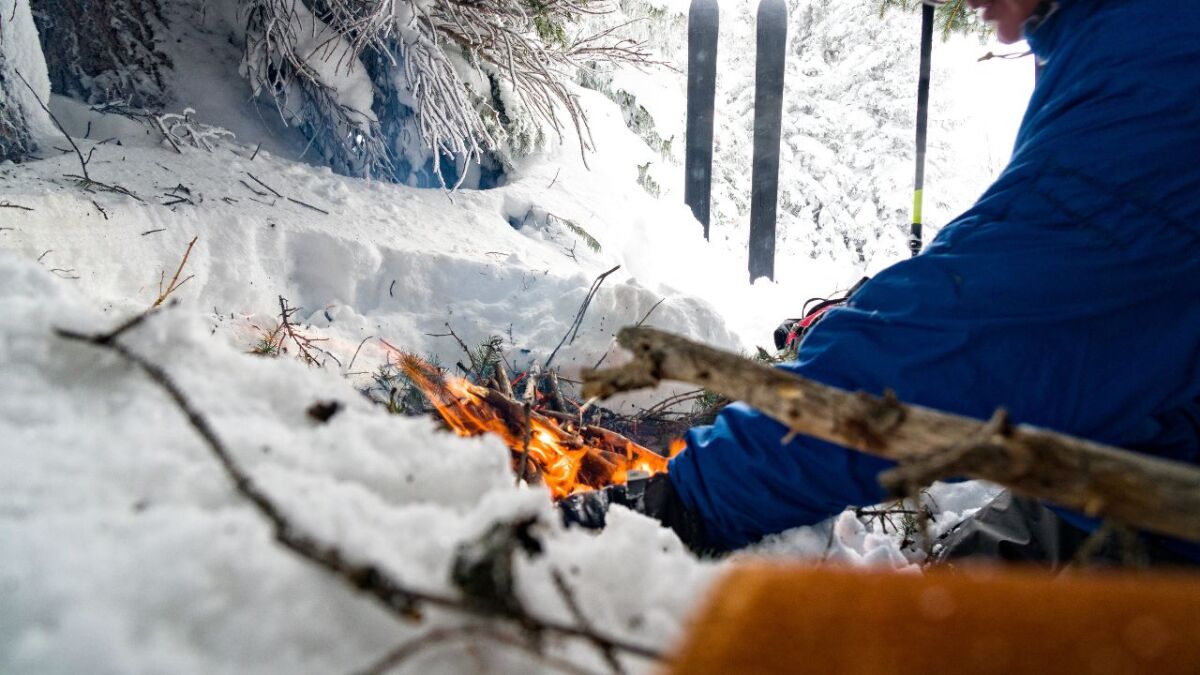
Survival Techniques: 6 must-have Skills for Outdoor Adventures.
👉 The key facts from this guide
- Survival techniques are essential skills and knowledge that help you survive in emergencies and ensure your safety.
- These techniques include various aspects such as fire-making, nature orientation, first aid, water and food procurement, as well as building shelter and accommodation.
- Practicing and learning survival techniques can prepare you for difficult situations and can even be useful in everyday life.
- Different environments require different survival techniques, so it is important to adapt to the specific conditions and challenges of the environment.
- The more you practice and experiment, the better you will become in applying these skills. So go out into nature and try everything.
- There are many resources available to learn survival techniques, such as survival courses, books, online resources, and experienced survivalists.
You love being outdoors and enjoy going on trips into the wilderness. But what if something unexpected happens all of a sudden?
Suddenly, you are completely on your own and your survival depends on your skills. Such situations can happen to anyone, even in a modern world.
That's why it's so important to master basic survival techniques. The right skills can save your life!
In this article, I will reveal the 6 essential survival skills that every nature enthusiast should have.
From making fire to first aid to water procurement - with this know-how, you are well-prepared for any outdoor adventure.
So let's go, together we will take your survival skills to a new level!
Survival Techniques - what skills are these?
Survival techniques are skills and knowledge that enable us to survive in emergencies and ensure our safety.
These skills encompass various aspects of survival, ranging from navigating in nature to procuring food and water.
First, I would like to give you an overview:
| Survival Techniques | What are they used for? | How to implement? |
|---|---|---|
| Fire Making | Heat, Light, Cooking, Protection | Firesteel, Flint, Bow Drill, Lighter, Chemistry, Sun |
| Orientation | Safety, Saving Time & Resources | Sun, Stars, Terrain, Map, Compass, GPS |
| First Aid | Immediate Assistance in Emergencies | Resuscitation, Hemostasis, Splints, Warmth |
| Water | Quenching Thirst, Cooling, Energy | Capturing Rain, Rivers, Plants, Filtering, Boiling |
| Food | Energy, Health, Morale | Plants, Berries, Mushrooms, Hunting, Traps, Fishing, Smoking, Drying |
| Shelter | Protection, Warmth, Retreat | Branches, Leaves, Snow, Caves |
And here you will find the most essential survival techniques and skills that you should know.
After each survival technique, I will provide you with comprehensive resources to delve deeper into the topic.
Survival Technique No. 1: Making Fire Like a Pro
Fire making is a key skill if you want to survive in the wilderness. It provides warmth and light. You can use it for cooking and keeping animals away.
Why making fire is so important:
- Heat: To combat cold and prevent hypothermia
- Light: So you can see where you're stepping
- Cooking: For safe and tastier food
- Animal protection: Keeps unwanted guests away
- Water purification: So you have safe drinking water
- First aid: Sterilization of instruments or needles
- Signal: To attract attention if you need help
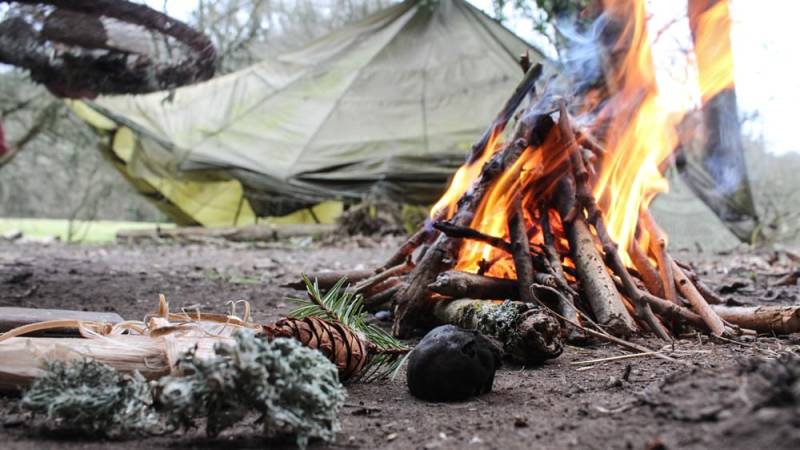
Methods for making fire:
- Bow drill: The classic, but requires practice and patience
- Lighter and matches: Quick and easy, but the supply is limited
- Firesteel: Perfect if you're looking for something durable and very reliable
- Flint and steel: A bit more challenging, but reliable with the right tinder
- Magnifying glass: Uses the sun, but requires clear skies
- Battery and steel wool: For the tech enthusiasts among you
- Chemical methods: For example, with potassium permanganate, more for advanced users
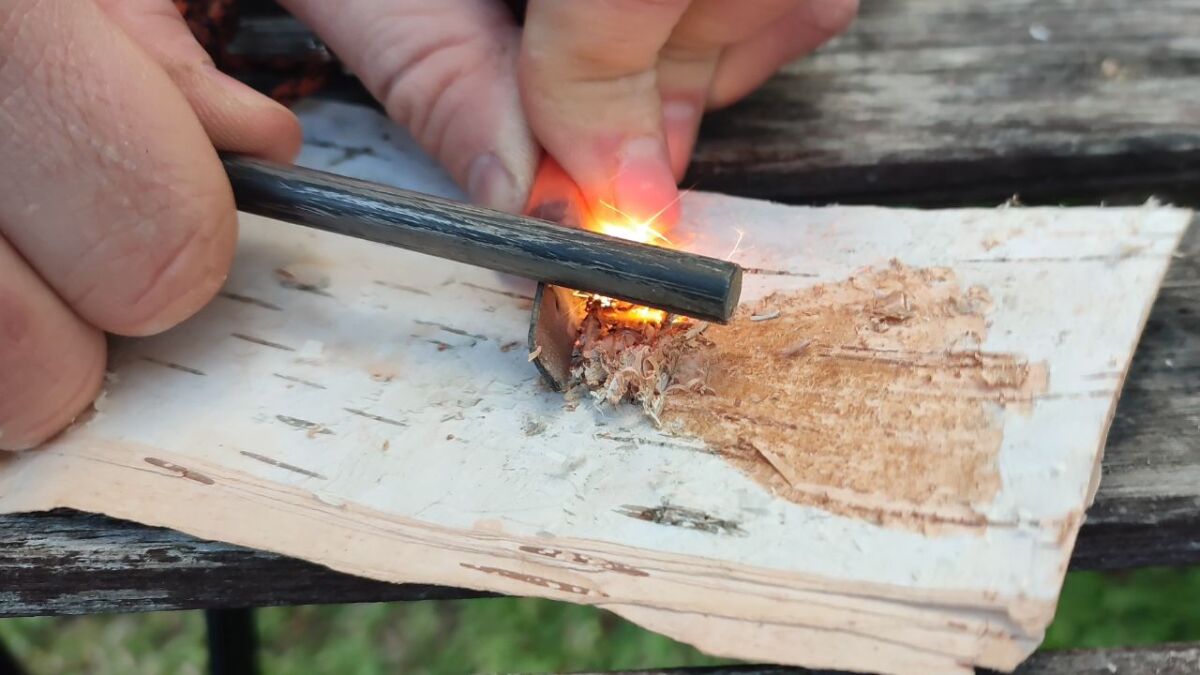
I recommend starting with the Firesteel, then moving on to the striker and later focusing on the bow drill.
With the fire steel, it's especially easy (here's the complete guide):
- Hold the scraper firmly in front of the tinder.
- Then quickly pull the fire steel over the scraper.
- The sparks land directly in the tinder and voilà, the fire is burning!
Here is a video about the method:
So, if you want to be the king or queen of the wilderness, you should master more than one method.
Remember, a good fire is like a good DJ - it brings warmth and light to every party, even in the wilderness. So, start now so you can shine later!
And so that you can really get into practicing, here are my detailed guides on the survival technique of fire.
Free resources for learning
Fire book:
Fire in general:
- How to start a fire? [10 steps to success]
- Making fire without a lighter or matches (18 methods)
- How to ignite a fire with just one match - the complete guide
Fire specific:
- What is a bow drill, and how does it work? (+ free construction manual)
- How to quickly and easily ignite a fire with a Firesteel (instructions + video)
- The best way to keep a fire burning all night
- Making fire in the rain - a guide, the main problems, and how to overcome them
- How to build and ignite a fire in the snow - the complete guide
- How to ignite a fire with a battery [picture guide]
- Fire with the sun: 8 pro-tips you need to know
Laws in Germany:
Tinder:
- Survival basic knowledge: Collecting and making tinder [22+ examples]
- Tinder and kindling: What's the difference?
Podcast:
Buying guide:
Lexicon entries:
Survival Technique No. 2: Mastering Wilderness Navigation
Imagine you are in the forest and don't know where you are.
This is like a puzzle where you want to see the picture before putting the pieces together. Without orientation, it's difficult to find your way home.
Important reasons for good orientation:
- Safety: You know how to get out of the forest.
- Time: You save time when you know the direct way.
- Resources: You need less food and drink for the journey.
Utilize Natural Clues
- The Sun: The sun is like a clock in the sky. It rises in the east and sets in the west. Knowing this, you can determine the directions.
- The Stars: At night, the stars are your friends. The North Star always points to the north. It is like the lighthouse in the dark.
- Landmarks: Streams, mountains, and valleys are like road signs in nature. They help you know where you are and where you need to go.

Modern Tools
- Map and compass: With a map and a compass, you are like a pirate searching for treasure. You can see exactly where you are and where you want to go.
- GPS: The GPS is like a magic wand. It tells you exactly where you are. But remember, it needs batteries.
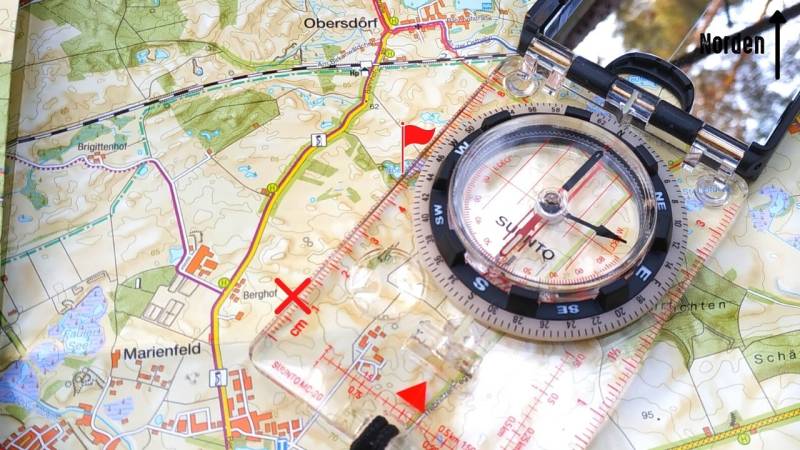
Table of Methods
| Method | Advantage | Disadvantage |
|---|---|---|
| Sun | Almost always there | Not at night |
| Stars | Shows North | Only on clear nights |
| Landmarks | Everywhere | Must know them |
| Map/Compass | Very accurate | Must be able to read them |
| GPS | Super accurate | Requires batteries |
The more you practice, the better you will get. So, go out into nature and try everything.
Only then will you become a master of orientation in the wilderness.
Free resources for learning
- Navigation and orientation without a compass - these 11 methods will help you determine the cardinal directions safely
- How to determine the cardinal directions using shadows (shadow stick method)
- Step-by-step guide: How to build your own compass
- How to use a compass with a map? - The complete beginner's guide with video
Lexicon entries:
Survival Technique No. 3: Providing First Aid and Saving Lives
Imagine you cut your finger while carving. Ouch! Without first aid, a small wound could become a big problem.
Here are the reasons why you should know first aid:
- Emergencies: Sometimes things just happen.
- Quick Help: You can help yourself or others immediately.
- Trust: You feel safer in the wilderness.
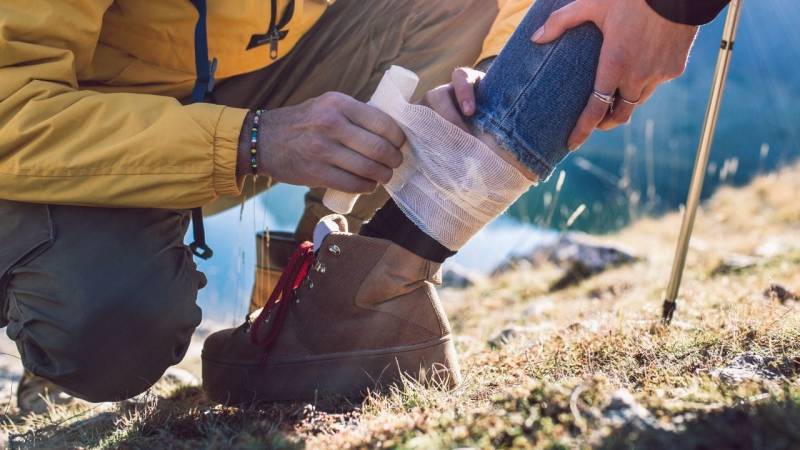
Basics of First Aid
- Create bandages: When you're bleeding, a bandage is like a plaster for big wounds. It keeps the blood inside and the dirt outside.
- Resuscitation: This is like restarting a computer, but for humans. If someone is not breathing, resuscitation helps them to start again.
- Treat wounds: If you have a wound, you need to clean it. Otherwise, bacteria can get in and it will get worse.
Medical emergencies and how to respond
- Snakebite: A snakebite is not like a bee sting. You need quick help. Stay calm and do not run.
- Bone fracture: A broken bone is like a broken branch. You need to support it so it can heal.
- Hypothermia: If you are very cold, you require warmth. Quickly change into dry clothes and keep warm.
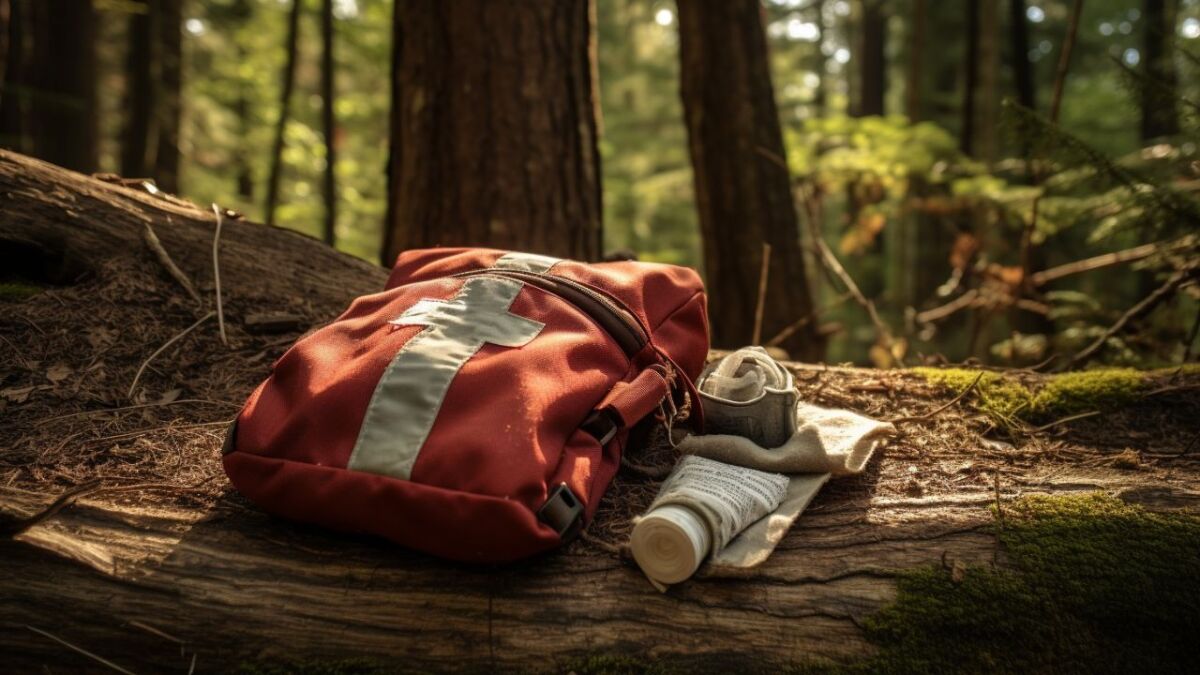
Table of First Aid for Survival Techniques
| Emergency | Survival Techniques: What to Do |
|---|---|
| Severe Bleeding | Stop bleeding, cover the wound |
| Cardiac Arrest | Chest compressions and rescue breaths |
| Wound | Clean and disinfect wound |
| Burns | Cool with water, not ice |
| Heatstroke | Move to shade, drink plenty of fluids |
| Insect Bite | Remove stinger, apply cold compress |
| Fracture | Support the bone, avoid movement |
| Hypothermia | Dry clothing, warm drinks |
| Snakebite | Do not run, stay calm, seek help quickly |
Now you know what to do in the most common emergencies in the wilderness. Being a true outdoor professional also means being prepared for such moments. So keep going and always be prepared!
Free resources for learning
- Bushcraft first aid kit: put together and apply
- Outdoor adventure: the most important first aid tips every camper should know
Lexicon entries:
Survival Technique No. 4: Finding and Purifying Water Like a Scout
Imagine you are like an explorer on a great journey. Without water, the journey will be very short. Water is like the fuel for your body.
Why you should always have enough water:
- Quench your thirst: You would rather not run dry.
- Energy: Without water, you feel weak.
- Cooling: Water helps to cool you down in hot weather.
Find water in the wilderness
- Collecting rainwater: Imagine the sky crying with joy. You can collect these tears in a tarp or a bowl.
- Rivers and lakes: These are like the highways of nature. You often find them in valleys or where animals drink.
- Plants and fruits: Some plants are like water reservoirs. They have juice that you can drink.
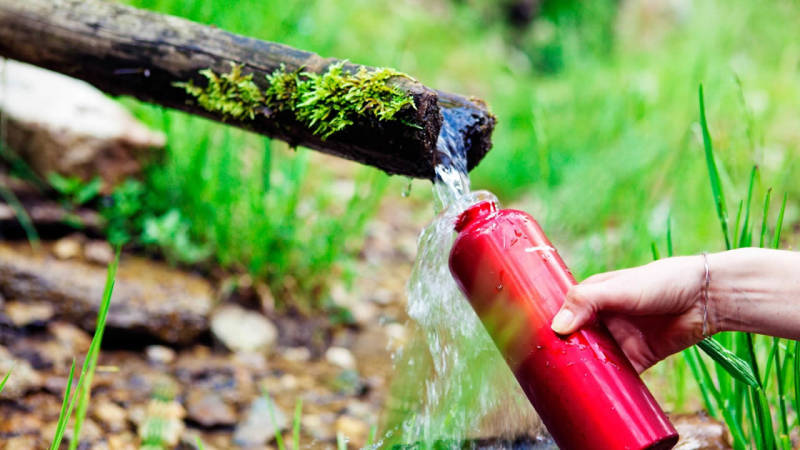
Purifying Water
- Boiling: You boil the water like your favorite soup. This kills most germs.
- Filtering: Imagine you let the water run through a coffee filter. This keeps the dirt out.
- Chemical agents: This is like brushing your teeth for the water. Put in tablets and the germs are gone.
- Distilling seawater: An elaborate but great method.
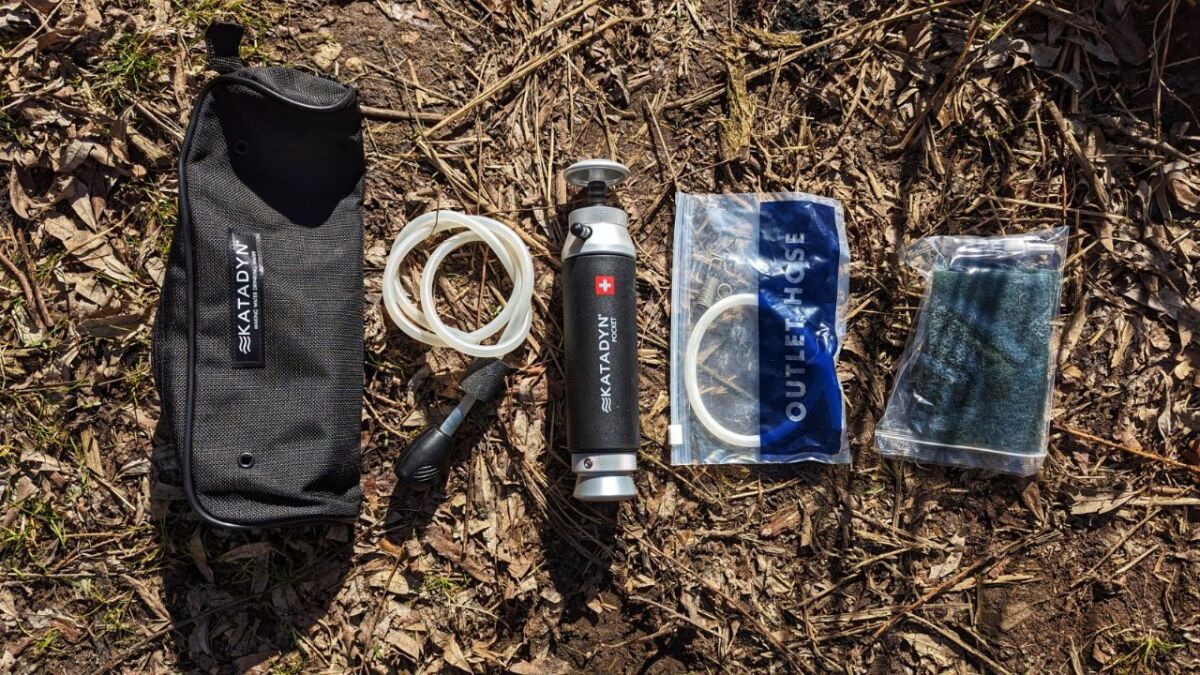
Table for water treatment
| Method | What to do |
|---|---|
| Boiling | Boil water for at least 1 minute |
| Filtering | Pass through cloth or special filter |
| Chemical | Use tablets or drops, follow instructions |
| Distillation | Allow water to evaporate and then cool down |
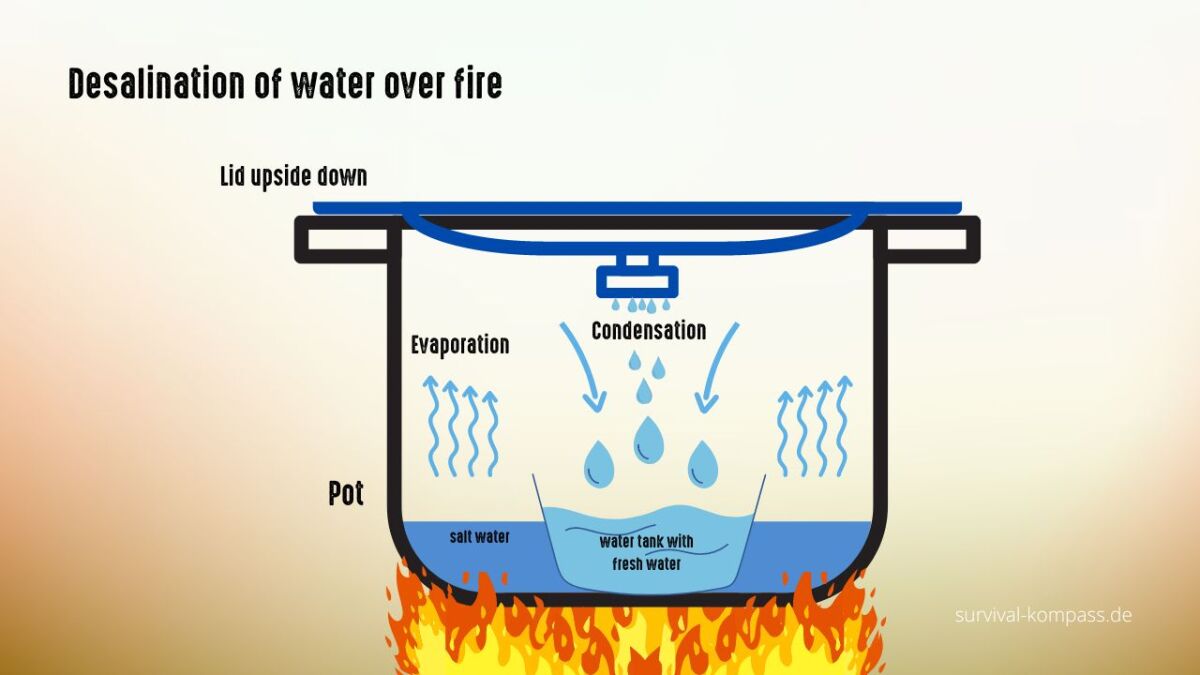
So pack your water bottle and your filter and go outside. Practice finding and purifying water until you become a true wilderness scout!
Free resources for learning
Basic guide:
- Find, collect, filter, and make drinking water - the ultimate water guide
- Boiling water without a pot: These 8 methods will help you obtain drinkable water
- 5 ways to remove salt from water (so you can drink it)
- Survival time without water: How long can the body survive without fluids?
Special guides:
- The transpiration bag: Collecting water effortlessly in the wilderness with this survival method
- How to build your own survival water filter [Survival Basics]
- Is rainwater clean and drinkable?
- How to re-mineralize distilled water?
- Can you drink urine to survive? Is it safe?
Crisis preparedness guide:
- Calculating water emergency supply per person - Prepper calculator for crisis preparedness
- How long can water be stored before it goes bad?
Equipment:
- The 11 best outdoor water filters for clean drinking water while camping
- The top 7 gravity filters for camping, bushcraft & outdoor
- GRAYL GeoPress review: The optimal outdoor water filter?
- Sawyer Mini PointONE water filter review: The solution for clean water?
- Katadyn Pocket water filter test (Review)
Lexicon entries:
Survival Technique No. 5: Procuring Food like a Hunter and Gatherer
Imagine your stomach growling like a hungry wolf. You need food to stay strong and fit. Without eating, you won't have energy for your adventures.
Why you need food:
- Energy: Eating is like fuel for your car.
- Health: Good food keeps you healthy.
- Morale: Delicious food lifts the mood.
Collecting Plants, Berries, and Insects
- Edible plants: This is like a treasure hunt! You can eat many leaves and roots.
- Berries: Berries are nature's candies. But be careful, some can be poisonous.
- Insects: Nutritious and easy to find.
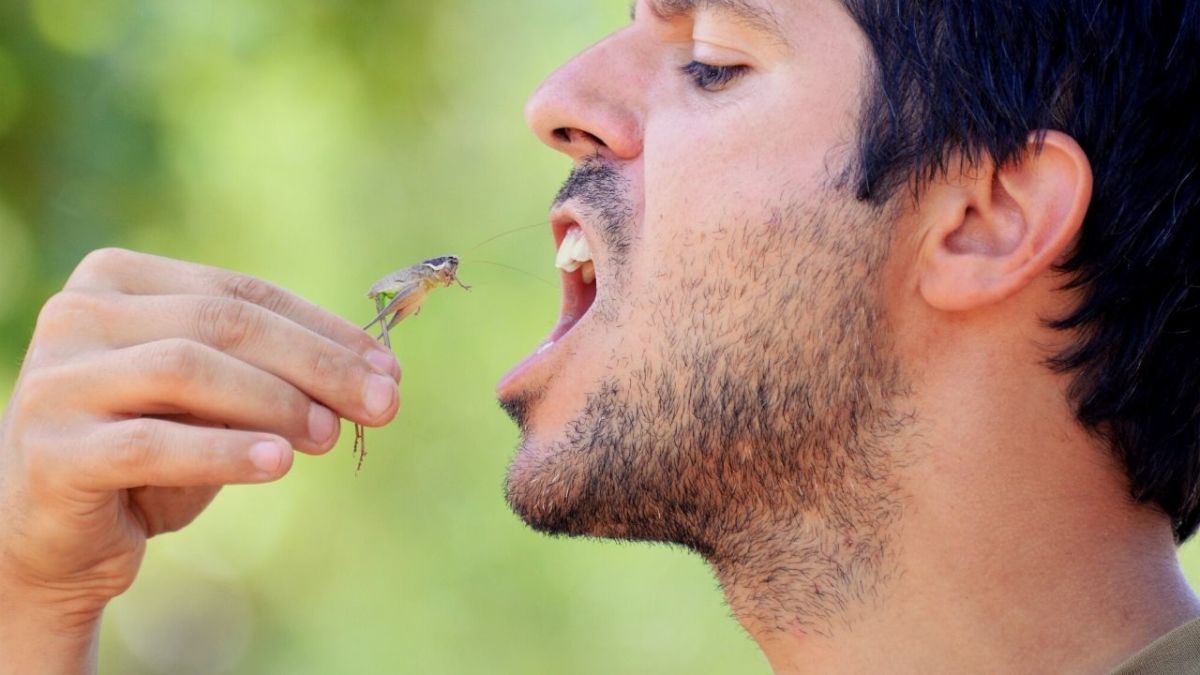
Hunting and Trapping
- Simple Traps: Imagine building a small trap and quickly getting food.
- Fishing: It's like a game. You cast the line into the water and wait for a fish to bite.
- Spearfishing: It's like playing darts, but in the water. You aim a spear at the fish.
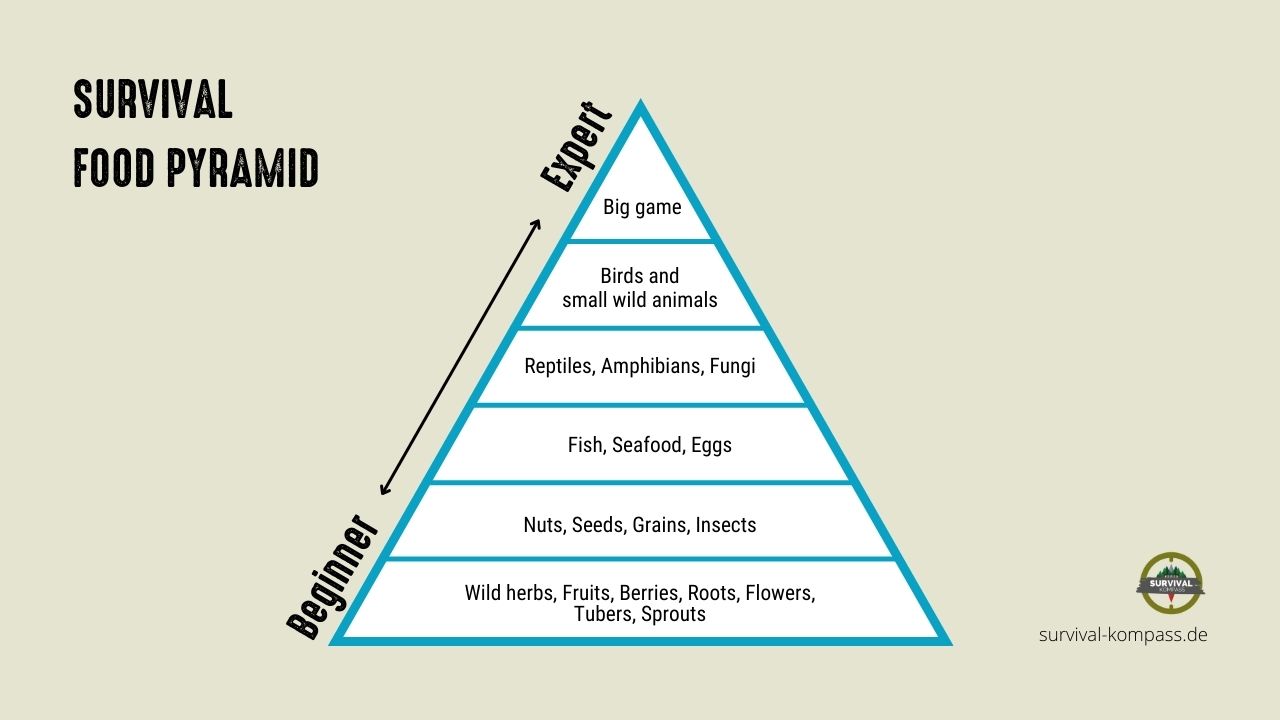
Preserving Food
- Drying: This is like letting the sun kiss. The water disappears, and the food remains preserved.
- Smoking: This is like grilling, only slower. The smoke makes the meat tasty and preserved. There is cold smoking and hot smoking.
Table for Food Procurement
| Food | What to do |
|---|---|
| Plants | Identify well, some are poisonous |
| Berries | Only eat if you are sure |
| Traps | Build simple mechanisms |
| Fishing | Have patience, cast the line |
| Spearfishing | Aim and hit |
| Drying | In the sun or by the fire |
| Smoking | Over smoke, cold or warm |
The more you try, the better you will get. So grab your knife, your fishing rod, and your curiosity.
Go out and practice how to find and preserve food. Who knows, maybe you are the next great hunter and gatherer!
Free resources for learning
Basic guide:
- 7 ways to find food in the wilderness
- Edible plants: find this emergency food in the forest (list + pictures)
- Winter food search: over 41 edible plants, nuts, roots, and more for emergency food in cold weather
Special guides:
- Can humans eat grass? And if not, why not? (+alternatives)
- Survival basics: eating insects (preparation, catching, breeding)
- How to check if a plant is edible [edibility test]
- Survival trap building: how to build a simple deadfall trap
- Is it safe to eat roadkill? - Consider these 9 essential things (+opinion from a hunter)
Lexicon entries:
Survival Technique No. 6: Building Protection and Shelter Like a Pro
Imagine you are in a new world, full of adventures. But even superheroes need a cave. A hideout is like your own little home in the wilderness.
That's why you need a shelter:
- Protection: From rain, wind, and animals.
- Warmth: Like a cozy blanket for the night.
- Rest: A place to relax and recharge.
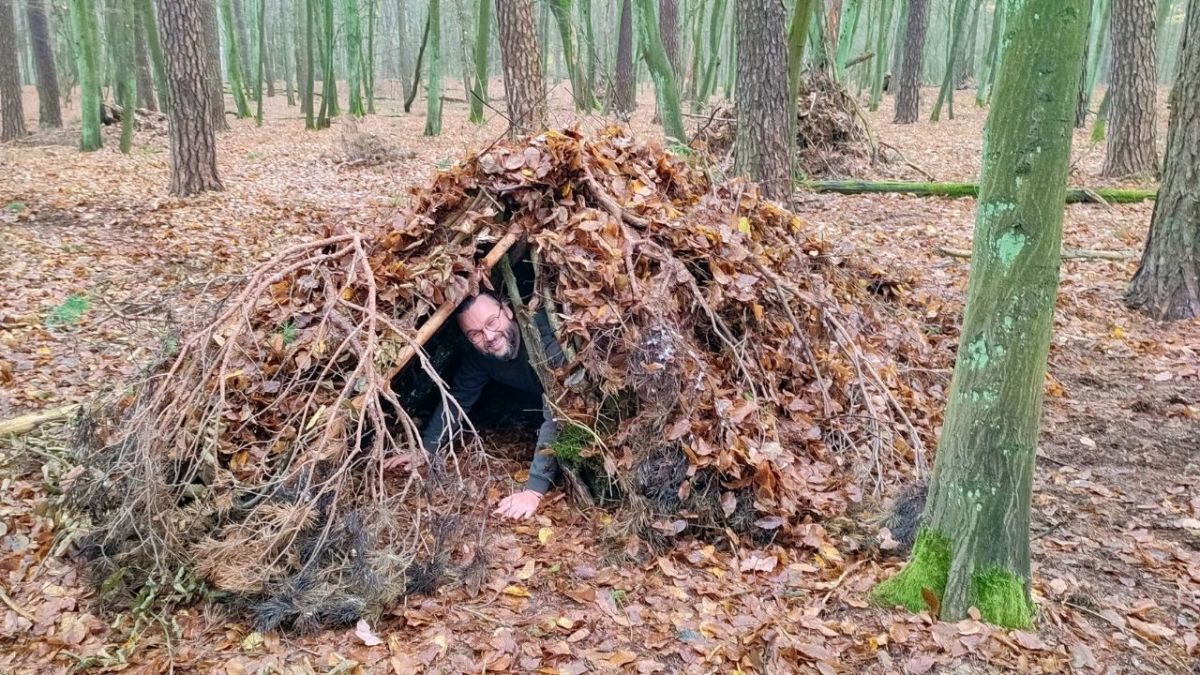
Techniques for emergency shelter construction
- Shelter made of branches and leaves: This is like a treehouse without a tree. You stack branches and cover them with leaves. It's like an extra thick jacket for your shelter. Leaves and moss keep you warm.
- Snow cave: This is like an igloo, but simpler. You shovel snow into a cave.
- Natural caves: If you're lucky, you might find a small cave.
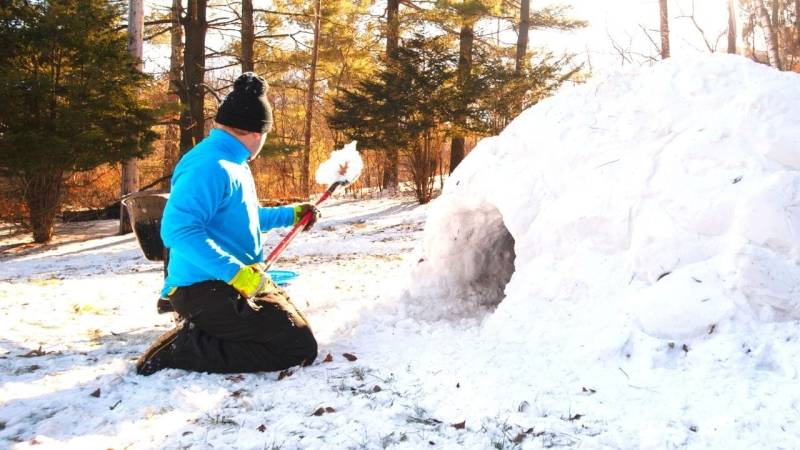
Table of Shelters: Pros and Cons
| Type of Shelter | Insulation | Weather Protection | Advantages and Disadvantages |
|---|---|---|---|
| Branches and Leaves | Medium to High | Protection against rain, wind, and cold | Requires time to build; materials usually available but can be leaky |
| Snow Cave | Medium to High | Protection against cold and wind | Keeps very warm, but requires effort and only possible with a lot of snow |
| Natural Caves | Variable | Protection against rain, wind, and cold | Immediate shelter, but rarely found and possible inhabitants (animals) |
A shelter made of branches and leaves is ideal against the cold. A snow cave is just as warm, but a lot of work. Natural caves are the quick start in terms of protection, but you may share them with other animals.
The more you build, the more you learn. So grab a shovel, a knife, or simply your hands. Go out and start building. You will see, soon you will be the builder of your wilderness cave!
Free resources for learning
Basic guide:
Special guides:
Lexicon entries:
Frequently Asked Questions about Survival Techniques (FAQs)
What are survival techniques?
Survival techniques are skills and knowledge that enable us to survive in emergencies and ensure our safety. They encompass various aspects such as making fire, navigating in nature, first aid, water and food procurement, as well as building shelter and accommodation.
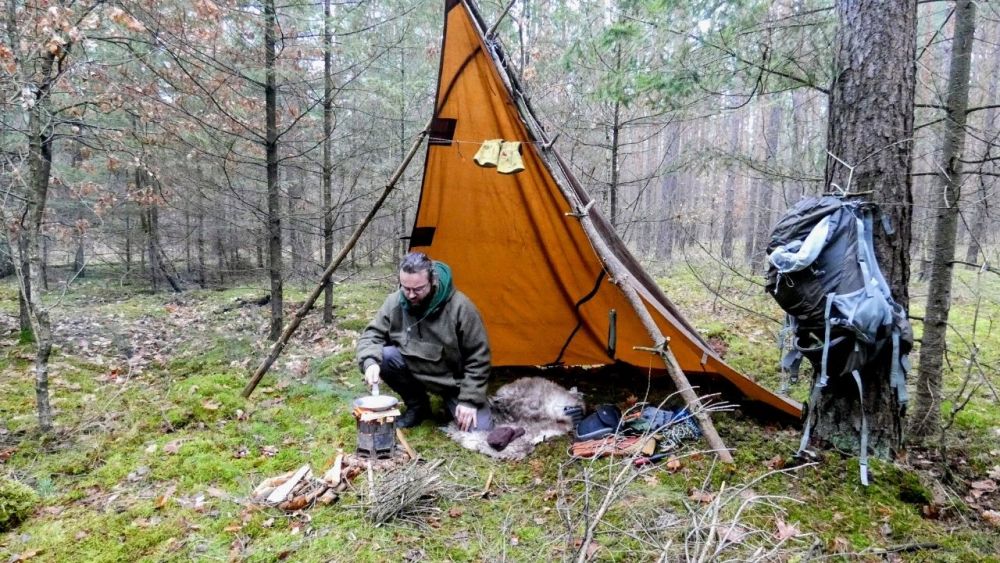
Why is it important to know survival techniques?
It is essential to know survival techniques as they can help us in difficult situations where we are on our own. They enable us to ensure our safety, protect ourselves from dangers, and fulfill our basic needs, such as food, water, and shelter.
Where can one learn survival techniques?
There are various ways to learn survival techniques. You can participate in survival courses or workshops, read books, use online resources, or learn from experienced survival artists.
How long does it take to learn survival skills?
The duration to learn survival techniques can vary depending on the complexity of the skills. Some basic techniques can be learned in a short amount of time, while more advanced skills require more time and practice.
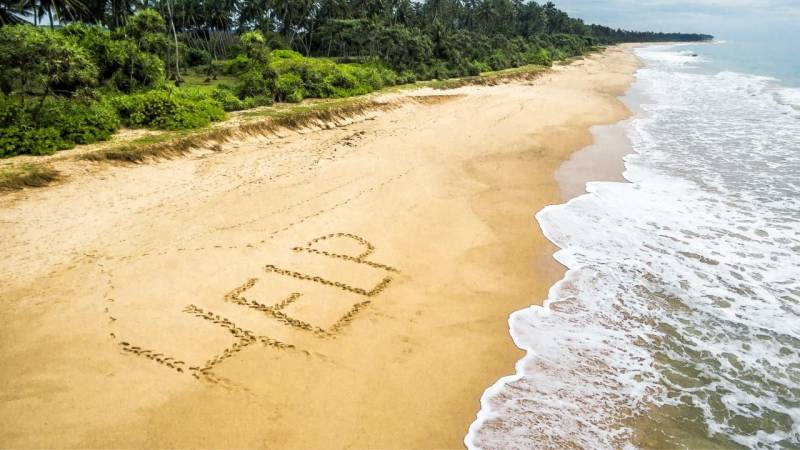
Are there specific survival techniques for different environments?
Yes, different environments require different survival techniques. For example, the techniques used in the wilderness are different from those used in an urban environment. It is important to learn survival techniques that are relevant to the specific environment, climate, and season you are in.
Can anyone learn survival techniques?
Every person can learn survival techniques. However, it takes time, practice, and commitment to effectively apply these skills. With the right education and preparation, anyone can develop the abilities necessary for survival in emergencies.
Your survival techniques - life-saving and practical for everyday use
Imagine this: You're in the middle of the wilderness and suddenly, you find yourself in a tight spot up to your neck.
Your fire just won't burn, the compass has ended up in the river, and a nasty storm is brewing. What now?
That's where your survival skills come into play.
In an emergency, survival techniques determine life and death.
Therefore, you should have these 6 survival techniques:
- Make fire like a pro - because without heat and light, you're out of luck
- Navigate in the forest like a fox - otherwise, you'll be searching for the way out forever
- Provide first aid like a medic - an injured hand in the middle of nowhere is no piece of cake
- Track down water like a beaver - the wilderness will make you thirsty faster than you can imagine
- Find food like a lynx - berries and worms will keep you alive
- Build shelter like an eagle - rainproof and warm for the rough night
Remember: With these skills, you can navigate yourself in a way that you harmonize with the often rough nature.
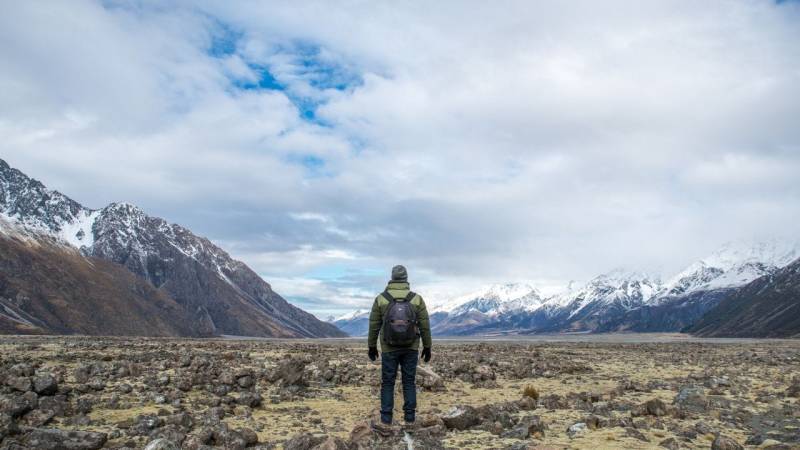
So get started on the survival bacon and train for emergencies. Then no adventure can harm you.
Remember that survival techniques can be useful not only in extreme situations, but also in everyday life.
If you want to delve deeper, then read my ultimate guide "What does Survival mean?". There I discuss further skills and equipment.


Author of the guide
Martin Gebhardt
Hey, I'm Martin. On my blog, you will learn the basics and numerous details about living in the wild. I think survival, bushcraft and the good life in nature are the keys to happiness. Find me here on Instagram or on YouTube. You can find more about my mission on the About Me page.
Was this guide helpful?
15 people found this guide helpful.
5.00 out of 5 points (15 Ratings)
Comments (0)
This post may contain affiliate links. So if you click on the links and make a purchase, I will receive a small commission at no additional cost to you. Click here, to learn more about it.


